The D-NOSES consortium has mobilised key experts in RRI, citizen science and co-creation (Fundación Ibercivis, Ideas for Change, Mapping for Change, and the European Citizen Science Association), international associations (Mediterranean Information Office for Environment, Culture and Sustainable Development, International Solid Waste Association, and the International Environmental Association of Odour Managers AMIGO), odour and sustainability experts, including universities and SMEs (Politecnico di Milano POLIMI, Associação Portuguesa de Engenharia do Ambiente APEA, Envirometrics Business Consultants and Engineers Ltd, and Ecotec), local administration (Saõ João da Madeira Municipality and the Municipality of Sofia) and public bodies (Intermunicipal Waste Management of Greater Porto LIPOR).
Our shared expertise will allow D-NOSES to make a comprehensive multi-site integration of all the D-NOSES dimensions, through all our proposed actions for all the case studies, from global to local, and from local to global. These multiple integrations will provide a holistic basis for building a common and coherent regulatory framework.
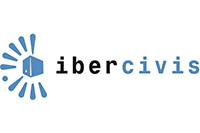
Fundación Ibercivis – D-NOSES Project Coordinator
Ibercivis is a non-for-profit foundation devoted to citizen science in Spain, which has deployed over 60 citizen science experiments, that allow society to participate in scientific research directly and in real time, supporting the research groups with hardware and software development. The foundation runs the Spanish portal Observatory of Citizen Science, is part of the steering committee of the European Citizen Science Association and has been working on enabling general public engagement in science through various European and community projects at local, national and international levels, such as the European Socientize Project. The latter delivered the White Paper on Citizen Science for Europe, referenced as a flagship document for the citizen science policymaking. Ibercivis also developed Odourcollect app to report odour complaints as a citizen science experiment which officially launched on September 30, 2016.
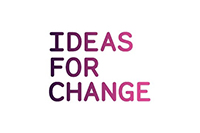
Ideas for Change (IFC)
Ideas for Change (IFC) is a consulting and research company that works in the fields of innovation, business strategy and user-centred design. They have pioneered research on open strategies and exponential growth and consulted for big, medium and small size clients looking to transition to more contributive and open strategies while sustaining competitiveness. As part of its core business, IFC has developed frameworks to catalyse innovative solutions to social challenges through creative combinations of citizen participation, the economics of open data and collaborative distributed technologies and processes, such as Pentagrowth, The Bristol Approach, Future Proof Lab and Salus.coop.
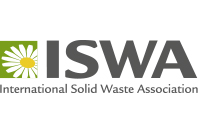
International Solid Waste Association (ISWA)
The International Solid Waste Association is a global, independent and non-profit making association, working in the public interest to promote and develop sustainable and professional waste management. ISWA is open to individuals and organisations from the scientific community, public institutions and companies working in the field of and/or interested in waste management. As the world’s leading waste management association with members in more than 109 countries, ISWA reaches out to around 40,000 waste management professionals via its network. ISWA has multiple partnerships and MOUs with various international organizations including the Climate & Clean Air Coalition, UN Environment, World Health Organization (WHO), and the World Cleanup Day.
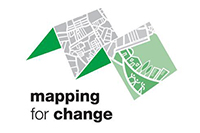
Mapping for Change
Mapping for Change is a social enterprise owned by University College London with 20 years of experience in research focused on citizen science, participatory mapping, and participatory geographic information systems. MFC specialises in community engagement, empowering individuals and communities to make a difference to their local area through the use of mapping and geographical information. They have been involved in a number of citizen science projects including Doing it together Science (DITOs), Collective Awareness Platforms for Accessibility (CAP4Access), EveryAware: Environmental Awareness through Social Information Technologies, and ECSAnVis, as well as authored publications exploring citizen science and participatory mapping.
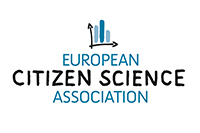
European Citizen Science Association
The European Citizen Science Association is a non-profit association set up to encourage the growth of the Citizen Science movement in Europe in order to enhance the participation of the general public in scientific processes, mainly by initiating and supporting citizen science projects as well as performing research on citizen science. ECSA has established a broad network of organizations from 27 EU countries, as well as Turkey, Israel, Thailand, Australia, New Zealand, USA, Argentina, Ecuador and Brazil; and in various sectors including: NGOs, universities, research institutes, museums, civil society organizations, SMEs, policy and decision makers, as well as other local and national institutions. The NGO has already been involved in a number of H2020 and related projects such as DITOs: Doing It Together Science; LandSense, A Citizen Observatory and Innovation Marketplace for Land Use and Land Cover (LULC) Monitoring; COST Action CA15212 Citizen Science; and BürGer schaffen WISSen (GEWISS), a German Citizen Science Project platform.
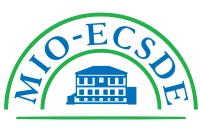
Mediterranean Information Office for Environment Culture and Sustainable Development
MIO-ECSDE is a non-profit federation of 127 Mediterranean non-governmental organizations (NGOs) working in the fields of environment and development in 25 countries of the Euro-Mediterranean area. It acts as a technical and political platform for the presentation of views and the intervention of NGOs in the Mediterranean scene. MIO-ECSDE is certified for meeting ISO 9001:2015 standards in the design, development, management and implementation of international and European projects on environment and sustainable development and has vast experience in research, policy, capacity building, advocacy and awareness raising on environment issues, including climate change, water, waste, nature, biodiversity, cultural diversity, circular economy and blue growth, sustainable consumption, education for sustainable development, citizen science, public participation, and stakeholders engagement. MIO-ECSDE facilitates four more networks of major Mediterranean stakeholders: a network of over 5000 educators (MEdIES), a network of Parliamentarians (COMPSUD), a network of Journalists (COMJESD), and a network of Universities (MedUnNet).
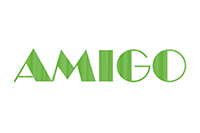
The International Environmental Association of Odour Managers (AMIGO)
Asociación Medioambiental Internacional de Gestores del Olor (AMIGO) is a non-profit international association dedicated to promoting and spreading the importance of a proper odour management. It originates from the International Odour Conference of 2015, when different participants from different countries decided to give odour management the importance it deserves, being a reference point for companies and governments. AMIGO has experience in working with all aspects of the odour pollution problems with the industry, environmental bodies and neighbourhood associations. The Association currently has 10 members representing Argentina, Chile, Colombia, Spain, and Perú.
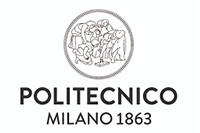
Politecnico di Milano
The Politecnico di Milano (English: Polytechnic University of Milan) is the oldest university in Milan and the largest technical university in Italy offering undergraduate, graduate and higher education courses in engineering, architecture and design. The Olfactometric Laboratory of the Politecnico di Milano was the first Olfactometric Laboratory in Italy in 1997, and since then, it has grown its activity including different methods for odour measurement. Such methods include dynamic olfactometry, electronic nose and chemical analysis by GC-MS. Almost all relevant studies of odour impact assessment by the combination of different techniques in Italy were conducted by the Laboratory, also including other techniques such as dispersion modelling, field inspection and questioning surveys involving the resident population. The Olfactometric Laboratory also has a unique expertise in the study and the development of specific equipment for odour sampling and is actually considered the Italian reference for environmental odour monitoring.
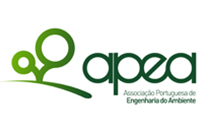
APEA Portuguese Association of Environmental Engineering
APEA is a non-profit association consisting of about 2600 environmental engineering professionals associated with public utility status. APEA represents the Portuguese network of professionals working in the Environment sector and its goal is to contribute to the progress of Environmental Engineering. The Association promotes cooperation among its members, protecting the interests of Environmental Professionals; promotes recognition and dissemination of Environmental Engineering in their specific scientific and technical characteristics and fosters the progress of knowledge and the development of Environmental Engineering and its teaching. APEA is actively facilitating exchanges with similar national and foreign associations, brings the best available techniques and practices of the environmental sector to the professionals and students, and organizes a number of events to disseminate information about the most important environmental issues.

Envirometrics Technical Consultants Ltd
Envirometrics is a private company based in Greece, which provides services in 11 countries around the region. The main areas of activity are environmental monitoring and measurements, health and safety at work, and business consulting with a special focus on energy, carbon management and climate change. The company holds a valid EN ISO 17025 accreditation in all EU and EA-MLA signatory countries and is ISO 9001, ISO 14001 and OHSAS 18001 certified. Its multidisciplinary team with over 10 years of scientific, technical expertise and experience in the field of emissions monitoring, air quality and environmental management has previously worked in several odour monitoring projects in solid waste treatment plants, wastewater treatment plant and refineries.
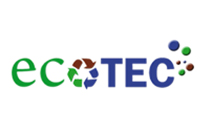
Ecotec Ingeniería Ltda
Ecotec Ingeniería Ltda. was founded in 2009 by two environmental engineers with several years of working experience. The company offers environmental consultancy services regarding solid and liquid waste management and odours to public entities, such as the Environmental Ministry of Chile, National Superintendence of Waste Water, Hospitals and Municipalities; and to private clients, such as water utilities and waste handling companies. In 2012-2013, Ecotec was contracted by the Chilean Environmental Ministry to design the National Odour Policy and to draft the roadmap for a comprehensive odour regulation in Chile. They also participated in several technical groups homologating international technical norms for odour assessment to local Chilean technical norms.
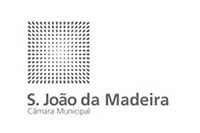
Municipal Council of S. João da Madeira
S. João da Madeira is located in the north of Portugal, a few miles from the cities of Aveiro and Oporto. Since the 70s, citizens from the Portuguese municipality of S. João da Madeira, have complained about bad odour coming from a local animal byproduct management plant situated in Santo Estêvão, located near the municipality of S. João da Madeira. It was in 2003 when the complaints of the families of S. João rose exponentially with medical reports claiming the impact of the bad odour in the deterioration of the health in many municipalities due to dizziness, nausea, amongst other symptoms. In 2011 Municipal Council of S. João da Madeira decided to implement a mapping tool to document, evaluate and control regular odours with citizen’s collaboration with schools, organizations and the general population. This project was eventually discontinued without achieving its main goal. In 2016 the population of S. João da Madeira, following the lack of solutions for the long-term odour issue, decided to create a social movement of protest called Ar Limpo which submitted the”Cheiro a Casqueira Não!” with more than 5.100 signatures to the Assembly of the Republic of Portugal which decided to issue the resolution n. º 190/2017. This resolution recommends the Government to take the necessary measures to resolve the environmental problems in the area. The municipality of Sao Joao da Madeira would like to use the D-NOSES methodologies and tools to recover the engagement with their citizens and to co-design solutions to minimize their odour pollution issues.
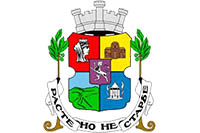
Sofia Municipality
Sofia is the capital of Bulgaria and the largest political, administrative, cultural and educational centre in the country, with a current population of 1,3 million inhabitants. Sofia Municipality is an administrative unit with a status of a region and divided into 24 districts, administered by local mayors. The main activities conducted by the Municipality include preservation of the environment, healthcare, social, educational and cultural activities for the citizens of Sofia. Sofia Municipality is the public authority responsible for waste management regulation and planning of its territory. Due to its role, the partner is the local authority responsible for the drawing up, implementation and management of waste collection and treatment strategies and policies. Sofia is obliged by Bulgarian National Legislation to develop a Municipal Waste Management Programme corresponding to National Plan for Waste Management.
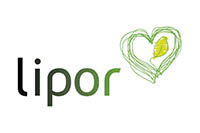
Intermunicipal Waste Manager of Greater Porto (LIPOR)
LIPOR – Intermunicipal Waste Management of Greater Porto – is a public company in charge of the management, recovery and treatment of the Municipal Waste managing of 8 municipalities in the Porto region: Espinho, Gondomar, Maia, Matosinhos, Porto, Póvoa de Varzim, Valongo and Vila do Conde. LIPOR is legally responsible for the compliance with national targets regarding recycling and every year treats about 500.000 tons of municipal waste that are produced by about 1 million Inhabitants. LIPOR has a large experience in national and international projects focusing on sustainable management strategy – policy for quality, environment, energy, health and safety, social responsibility and innovation. In addition, the LIPOR Composting Plant includes odour treatment strategies.